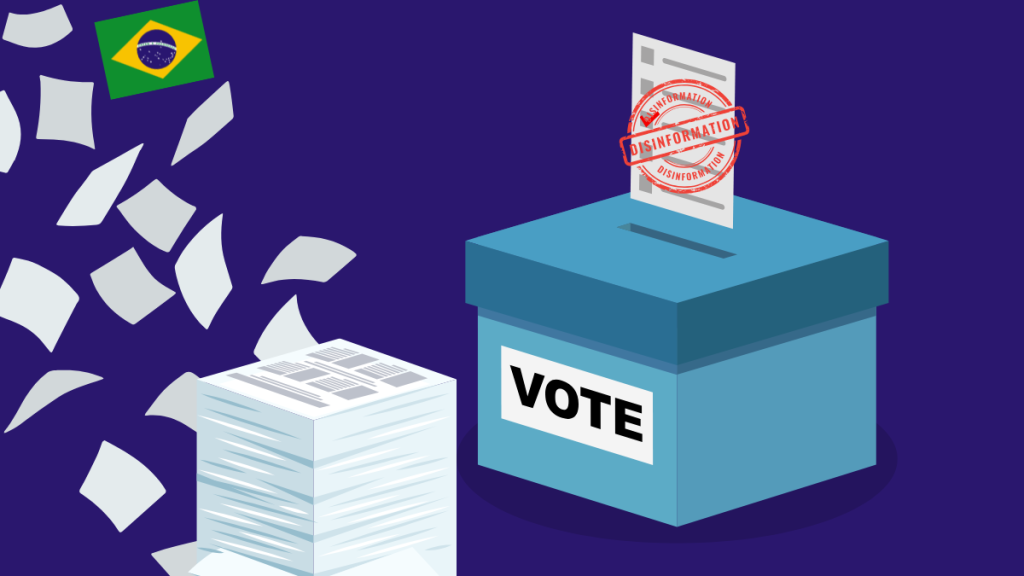Listen to the article
Brazilian Courts Face Dilemformation Dilemma as Freedom of Expression Clashes with Electoral Integrity
A growing challenge faces Brazilian electoral courts as they attempt to combat disinformation while respecting constitutional freedoms, according to legal expert Caio Mario S. Pereira Neto in recent discussions at the Stigler Center’s 2025 Antitrust and Competition Conference.
Pereira Neto highlighted how Brazil’s experience illustrates a paradoxical situation where anti-censorship principles can inadvertently enable flooding strategies that threaten electoral integrity. The problem reflects broader global concerns raised during the conference, where Tim Wu described how both state and non-state actors use speech itself as a weapon through harassment, troll attacks, and coordinated disinformation campaigns.
Since 2018, Brazil’s Regional Electoral Tribunals and Superior Electoral Court (TSE) have employed a case-by-case, content-based approach to combat electoral disinformation. Courts can order digital platforms to remove content “known to be untrue” during election cycles. In 2022, the TSE expanded its authority to also target “severely decontextualized” facts.
One notable example from the 2022 elections involved false claims that QR codes on new federal electoral IDs would automatically register votes for candidate Luís Início Lula da Silva. The TSE determined this claim was demonstrably untrue and ordered its removal from all platforms, asserting that the QR codes merely contained voter authentication data with no connection to any candidate.
This judicial approach has generated substantial litigation. Research from FGV-CEPI documented 1,492 cases addressing online disinformation during just the 2018 elections, comprising 2,850 total decisions including interim measures and appeals.
Brazil’s legal framework requires courts to balance freedom of expression against other constitutional principles, such as electoral fairness. However, this balancing act has sparked significant anti-censorship concerns, particularly among right-wing parties and their supporters. Although no systematic studies have conclusively shown political bias in court decisions, right-wing groups have been notably more vocal in their opposition to content removal orders.
This has created what Pereira Neto describes as a dangerous feedback loop. When courts remove content deemed disinformation, they inadvertently draw more attention to it—a variation of the Streisand Effect. The visibility of takedown orders fuels anti-censorship rhetoric, which then increases incentives for affected parties to publish even more extreme disinformation. Courts respond with further interventions, perpetuating the cycle.
“The courts’ efforts to protect election integrity and ban disinformation can ultimately generate additional harm to the information environment,” Pereira Neto explained. This creates a no-win situation: failing to strike down disinformation favors those flooding the public sphere with false content, but removing it can generate backlash and draw further attention to the disputed claims.
The complexity is compounded by the fact that court decisions themselves become part of the contested information environment. Judges cannot act from a neutral position outside the public debate, as their rulings inevitably generate strong reactions from affected parties.
Despite these challenges, Pereira Neto argues that courts have played an important role in protecting Brazilian electoral integrity. He suggests that judges should shift focus from targeting individual pieces of content to combatting organized disinformation campaigns, coordinated attacks on election integrity, and the financial backing of fake news.
Alternative strategies could include increasing transparency for paid social media advertisements, giving users more control over recommendation algorithms, temporarily limiting mass-forwarding capabilities during elections, restricting group sizes, and improving detection of automated accounts.
“There is no silver bullet to minimize the flooding of disinformation during elections,” Pereira Neto concluded. Understanding the dynamics of the information environment and potential unintended consequences of interventions is essential for designing effective policies that protect both freedom of expression and electoral integrity.
The Brazilian experience offers valuable lessons for other democracies grappling with similar challenges in an increasingly complex digital landscape where the lines between protecting speech and combating harmful disinformation continue to blur.
Fact Checker
Verify the accuracy of this article using The Disinformation Commission analysis and real-time sources.




8 Comments
The use of ‘severely decontextualized’ facts as a basis for content removal is an interesting approach. It acknowledges that disinformation can come in more subtle forms than outright lies. Curious to see how this is applied in practice.
Yes, that’s a nuanced way to address the problem. Simply removing ‘known untrue’ content may miss more sophisticated disinformation tactics. Expanding the scope to include decontextualized information is a thoughtful step.
The use of digital platforms to spread disinformation is a troubling trend. I’m glad to see Brazil’s courts taking steps to combat this, though the details of implementation will be crucial. Maintaining public trust in elections is paramount.
Agreed. Digital platforms have become a vector for coordinated disinformation campaigns that can undermine the democratic process. Proactive steps to address this threat are important, but the approach must be carefully balanced.
This highlights the global challenge of preserving free speech while protecting the integrity of elections. It’s a difficult balance, and Brazil’s experience may offer lessons for other countries grappling with similar issues.
This is a complex issue with no easy solutions. Balancing free speech and electoral integrity is challenging, especially with the rise of coordinated disinformation campaigns. I’m curious to see how Brazil’s courts navigate this tricky balance.
You’re right, it’s a delicate balance. Allowing too much disinformation can undermine faith in the democratic process, but overly broad censorship raises its own risks. Thoughtful, nuanced approaches are needed.
This is a complex issue with valid arguments on both sides. I’m curious to see how Brazil’s courts navigate the tradeoffs between free speech and electoral integrity. Their approach may provide insights for other countries facing similar challenges.